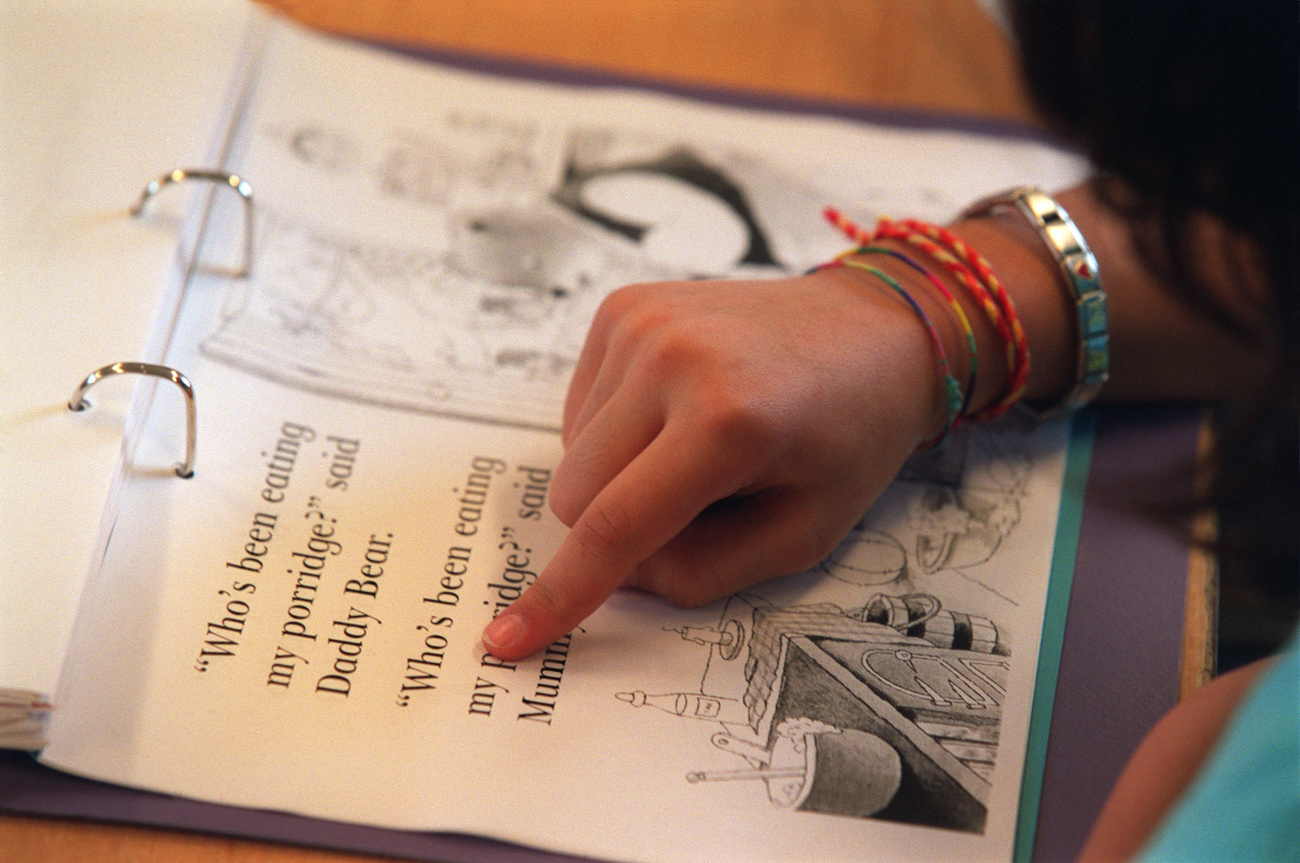
English and other foreign languages on rise in Switzerland

The proportion of people in Switzerland whose main language is not one of the four national languages – German, French, Italian or Romansh - has risen significantly in recent years, according to the Federal Statistical Office.
+ Get the most important news from Switzerland in your inbox
German was the most widely spoken language in Switzerland in 2023, followed by “other languages”, with French in third place, the office said on Monday.
Almost two-thirds (66%) of permanent residents speak German as their main language, while 24% use a non-national language. In German-speaking Switzerland, people speak in dialect but write in standard German.
French is spoken by 23%, followed by Italian (8%) and Romansh (0.5%).
While the percentage of French-speakers has risen over the last five years, German, Italian and Romansh have slipped.

More
What language is spoken in Switzerland?
In total, 17% of people in Switzerland speak two or more main languages, 39% do so at work and 44% of children in Switzerland are in contact with several languages at home.
Do you speak English?
Among the non-national languages, English stands out. In 2023, 6% of the permanent resident population said English was their main everyday language, compared with 4% in 2010.

More
English as a common language in Switzerland: a positive or a problem?
Meanwhile, 3% said their main language was Portuguese or Albanian, followed by Spanish and Serbian/Croatian (all 2%).
English is also an important language in the workplace. In 2023, 23% of the working population spoke English at work. This was almost as much as French (28%) and well ahead of Italian (8%), according to the statistics office.
Translated from French with DeepL/sb
This news story has been written and carefully fact-checked by an external editorial team. At SWI swissinfo.ch we select the most relevant news for an international audience and use automatic translation tools such as DeepL to translate it into English. Providing you with automatically translated news gives us the time to write more in-depth articles.
If you want to know more about how we work, have a look here, if you want to learn more about how we use technology, click here, and if you have feedback on this news story please write to english@swissinfo.ch.

In compliance with the JTI standards
More: SWI swissinfo.ch certified by the Journalism Trust Initiative

























You can find an overview of ongoing debates with our journalists here . Please join us!
If you want to start a conversation about a topic raised in this article or want to report factual errors, email us at english@swissinfo.ch.